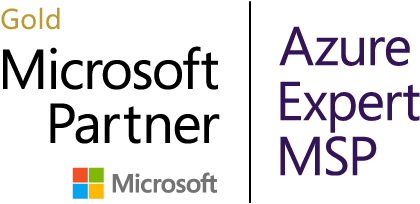
Every part of healthcare has been hugely impacted by the pandemic. Last two years were full of transformation and emerging new trends in healthcare. Creation of personalized experiences for patients, implementation of virtual health solutions for unlocking new avenues of care for providers and reducing administrative burden to lower clinician burnout are needs of the hour.
Continued agility to predict what’s next and respond rapidly can reshape the future of healthcare. A new approach like harnessing data as a resource and turning its potential into power can do it.
Microsoft is dedicated to innovating new and cutting-edge solutions which can help make healthcare more affordable, effective, personal, and accessible apart from improving experience of patient and clinician.
Improve Patient Engagement
Good customer experience not only helps the patients but also enables their staff to provide consistent care throughout the patient’s journey.
360° clear, intuitive, and holistic view of patient’s journey is provided by Microsoft Cloud of Healthcare to assist organizations in better understanding and elevating the patient experiences.
These views can be used by organizations to customize their own end-to-end solutions. Patient representatives, care managers, population health analysts, and care managers can capture useful patient insights and efficiently deliver with new enhancements to patient insights. Care management experiences and clinical processes can be improved for organizations with the analytics from patient insights.
Empowering healthcare frontline workers and patient support with technologies like virtual visits and AI powered bots helps in assisting patients remotely while facing staffing shortages. This not only saves team’s valuable time but also ensures that consistent quality care is provided to the patients.
Healthcare organizations can build bot scenarios instantly with Azure Health Bot which collects patients’ secure and compliant responses directly for uses like flu vaccinations, triage, and more. New templates for chronic condition management and self-reporting of quality-of-life measures are now part of template catalogue.
Microsoft Teams for frontline workers in healthcare
Microsoft Teams EHR connector’s capabilities is expanded by the new centre validated application. Clinicians can consult with other providers in Teams directly from Centre PowerChart, easily launch virtual appointments with patients, gain real-time status reports of their visits to help improve patient care, and effortlessly invite other care team members to virtual appointments.
New device test feature of the Microsoft Teams EHR reduces no-shows and allows patient to test their hardware settings about their virtual visit. Improvement of virtual appointments through new ways can assist organizations in reducing the administrative burden. Microsoft forms and Microsoft bookings app can be integrated while patient triage information can be gathered from virtual appointments in teams.
Patients can request on-demand appointments from provider with Microsoft teams. Bookings app in Teams enables organizations using on-demand scheduling to see and monitor on-demand appointments in a queue view. Real-time updates on patient wait times, missed appointments, staffing delays, and more are available for care teams on monitor on-demand appointment requests.
Lobby wait time, appointment duration, the impact of SMS notification, and more are key business insights which can be understood by gaining insights into the performance of virtual appointments. Microsoft Teams Admin Centre for appointments scheduled through Microsoft Bookings and the Microsoft Teams EHR connector can give insights into these areas to the authorized users.
Empowering team collaboration in healthcare
Burnout in healthcare industry was exposed and worsened by the pandemic. It was found in a recent survey that nearly a third of frontline healthcare workers in U.S. are considering leaving the field altogether rather than just moving on from their current institution. WHO has projected a shortfall of 18 million health workers by 2030.
Technology can’t eradicate burnout but can help. Communication can be centralized, insights surfaced, file sharing facilitated, workforce management streamlined, and partner applications integrated by the right tools.
Right purpose-built devices can improve productivity and streamline the engagement, apart from supporting and tracking wellbeing, keeping teams connected irrespective of the distance.
Improved collaboration and communication can ease extra workload due to EHRs. Caregivers can securely communicate right information to relevant people and can synchronize management efforts among clinicians and administrators with Microsoft Teams. Adopting such solutions increases efficiency and make the team feel valued.
Enhancement of clinician’s experiences
Healthcare industry has faced two major challenges this decade, one is “great resignation” of the frontline healthcare worker and clinician’s burnout due to epidemic. Advanced cloud and AI solutions can solve these issues. Automated clinical documentation and greater flexibility in delivering care through telehealth applications helps in improving patient’s experiences and support for clinicians with the technologies. Ambient clinical intelligence can be expanded, silos of healthcare data bridged, overall healthcare costs decreased, and physician & care team efficiency increased by Microsoft.
Improvement of operational and clinical insights
Sheer volume of inaccessible and unstructured data produced in healthcare industry is another big challenge. This means that it is unusable for analysis and AI & machine learning while wastes time on processing. Microsoft Cloud for Healthcare supports organizations in their data interoperability journey.
Azure Health Data Services helps life sciences and health organizations in harnessing and unlocking the power of healthcare data. It is a centralized suite of solutions and products for MedTech, imaging, and clinical data supporting data standards like Digital Imaging and Communications in Medicine (DICOM) and Fast Healthcare Interoperability Resources (FHIR).
Azure Health Data Services consists of a set of health data connectors, healthcare APIs, and tools especially built for personal health information. The process of gathering data from disparate sources while enabling compliance boundaries and patient privacy is considered. Life sciences and health organizations can analyze multiple data types, empower new workloads and build on a secure cloud with the help of the managed service.
FHIR is getting adopted across the globe but there are gaps in representation of unstructured information in the clinical narrative. Text Analytics for health’s structuring to FHIR feature enables health organizations to transform unstructured clinical documents into bundle of interconnected hierarchical FHIR resources in compliance with US core standards. Population and patient insights can be deepened, and interoperability gets supercharged with Text Analytics for health customers.
Reimagining healthcare together
Last two years are full of transformational and inspirational innovations across healthcare. Microsoft Cloud for Healthcare keeps on enhancing its capabilities based on interactions with customers, they keep innovating, reshaping, and reimagining healthcare.
Hanu, a leading Microsoft Gold Partner, is committed to help organizations enhance engagement, strengthen resilience in people, and empower frontline workers for the benefit of organizations, teams, and patients everywhere.
Learn more about Cloud for Healthcare and follow us to stay informed.



